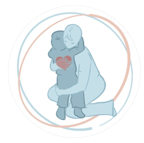
Self-Assessment: Am I Okay?
Simple, confidential self-assessment forms to help you reflect on your thoughts and feelings.
While not a diagnosis, these tools can help you better understand your mental health and whether you might be experiencing signs of a mental health condition. It's a small but important step toward getting the support you may need.
Why Should I Assess Myself?
Assessing yourself offers a chance for you to dig deeper inside yourself and get to know yourself. It opens up old wounds, of course, but it also allows you to heal them with better medication and tools. You no longer run and try to hide these wounds and stiffle your healing journey, but instead you embrace those wounds and try your best to heal them with time. You let what humans do best happen, improving. You improve yourself to a version where you know you'll feel comfortable and self-diagnose is a step that could lead you there. If good mental health is the end line then self-diagnosing is the start line.
Check In With Yourself With These Forms






Addiction
An addiction is a long-term malfunction of the brain's reward, motivation, and memory systems. It's all about how your body craves a substance or behavior, particularly if it leads to a compulsive or obsessive pursuit of "reward" with little regard for the consequences.




Eating Disorder
Anxiety
ADHD
Eating disorders are not lifestyle choices and are often fatal illnesses marked by significant changes in people's eating habits, as well as related thoughts and feelings. An eating problem may be indicated by a preoccupation with food, body weight, or shape.
Anxiety disorders are more than just a feeling of worry or fear. Anxiety does not go away for those with anxiety disorders, and it can worsen with time. Symptoms might make it difficult to do things like work, schoolwork, and maintain relationships.
Depression
Depression is a common but significant mood disorder. It causes severe symptoms that impact how you feel, think, and cope with daily tasks like sleeping, eating, and working. The symptoms of depression must be present for at least two weeks in order to be recognized.
A person with Attention Deficit Hyperactivity Disorder (ADHD) has differences in brain development and brain activity that affect attention, stillness, and self-control.


OCD
Obsessive-compulsive disorder (OCD) is marked by irrational thoughts and anxieties that lead to obsessive behaviors. Fear of germs or the urge to organize objects in a precise order is a common motif in OCD. Symptoms normally appear gradually and change over time.
Disclaimer!


